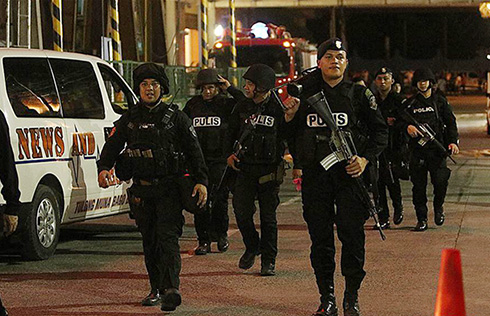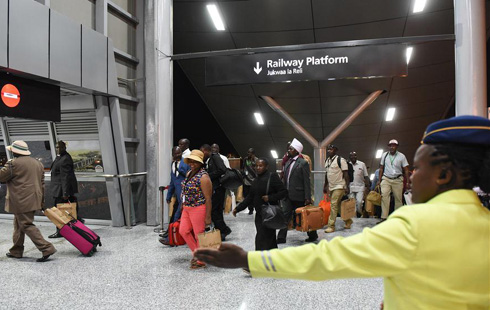Mosul residents mark Ramadan as life is returning to normal
"The mood of the customers has changed this Ramadan for the better, because people feel safer and their families are more secure after we've got rid of Daesh," said Thanoon Younis, owner of a convenient store in a crowded market in Mosul.
However, Younis complained of the slow movement of the shopping as many of Mosul's families are still living in camps outside the city for the lack of basic services like drinking water. People still rely on water of wells.
"The life is returning gradually, especially on the left bank of Mosul (eastern side of Mosul), because it is safer by the victories of the security forces over the terrorists," Younis said.
Most of the traditional games and activities of Ramadan were cancelled by the IS militants, who were roaming the streets and alleys to look for whoever breaks their extremist laws and instructions.
"What's new in this year is the return of those traditions and games of Ramadan, like the one I like: Mehiebes. We are playing the game again," Younis said with joy on his face.
The Mehiebes, or the hidden ring, is an Iraqi communal game played by different ages of men who are divided into two teams. It gives the holy month its unique flavor. The winners will get large plates of popular Iraqi sweets, named Zalabiyah and Baqlawa, but traditionally the sweets are handed out to all the players and the audience during or after the game.
Meanwhile, Younis expressed his serious concerns about the tragedies and suffering of the people who are still living in the IS-controlled areas in the western side of Mosul.
"We pray for the innocent people inside and near the old city center. I am always thinking about their miserable life, their hunger, thirst and daily killings," Younis said.
According to the UN Office for the Coordination of Humanitarian Affairs (OCHA), the number of civilians remaining in the old city and surrounding neighborhoods cannot be known exactly, but the office estimated 200,000 may leave their homes in the coming days of battles.
"We don't know for sure how many civilians are still in IS-held districts, but as many as 200,000 additional people may try to leave in coming days," an OCHA report said on Friday.
Iraqi forces, backed by international coalition, have been fighting to drive out IS militants from the western side of Mosul, but several neighborhoods, including the densely-populated old city center, are still under control of the extremist group.
According to the Iraqi military, over 90 percent of the city has been retaken from IS in the ongoing major offensive launched in October last year.
Mosul, 400 km north of Iraq's capital Baghdad, has been under IS control since June 2014, when government forces abandoned their weapons and fled, enabling IS militants to take control of parts of Iraq's northern and western regions.




















